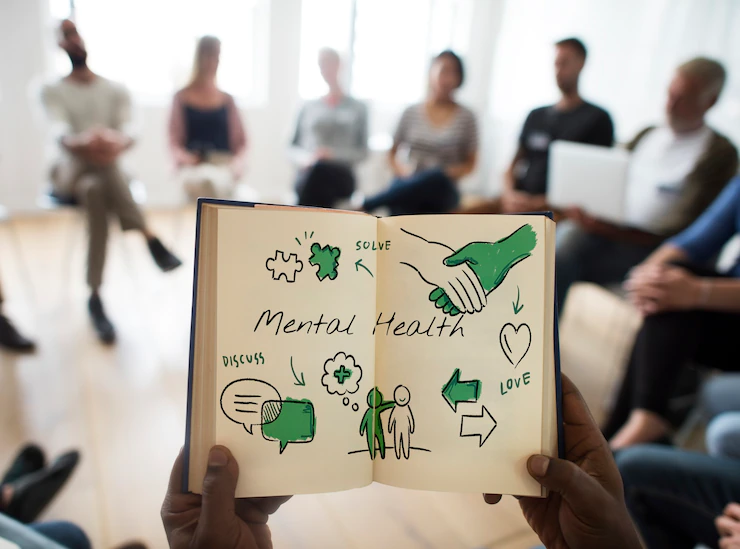Mental health and relationships are intricately connected, with each influencing the other in profound ways. The quality of our relationships can impact our mental well-being, and our mental health can significantly affect the dynamics and outcomes of our relationships. Understanding this interplay is crucial for fostering healthy and supportive connections. Here, we delve into the connection between mental health and relationships and how they can influence each other:
- Impact of Mental Health on Relationships:
a. Communication and Emotional Availability: Mental health conditions, such as anxiety or depression, can affect our ability to communicate effectively and be emotionally available to our partners. Symptoms such as social withdrawal, irritability, or difficulty expressing emotions can strain the communication and emotional connection within a relationship.
b. Relationship Satisfaction: Mental health challenges can impact overall relationship satisfaction. When individuals are experiencing significant distress or struggling with their mental well-being, it can strain the emotional bond and lead to feelings of dissatisfaction or disconnection within the relationship.
c. Intimacy and Sexual Health: Mental health conditions can affect intimacy and sexual health. Issues like decreased libido, body image concerns, or emotional barriers can arise, impacting the physical and emotional intimacy between partners.
d. Conflict Resolution: Unmanaged mental health conditions can affect conflict resolution within relationships. Individuals struggling with mental health challenges may find it more challenging to regulate their emotions or engage in constructive problem-solving, leading to more frequent or escalated conflicts. - Impact of Relationships on Mental Health:
a. Emotional Support: Healthy relationships can provide emotional support and serve as a protective factor for mental health. Having a supportive partner who listens, validates feelings, and provides comfort can positively impact one’s mental well-being.
b. Stress and Anxiety: Relationships can contribute to stress and anxiety, particularly when conflicts, lack of communication, or a lack of emotional support are present. Chronic relationship stress can increase the risk of developing or exacerbating mental health conditions.
c. Sense of Belonging and Self-Worth: Positive relationships foster a sense of belonging and enhance self-worth, which are vital for good mental health. Feeling valued, understood, and accepted by a partner can positively influence self-esteem and overall well-being.
d. Protective Factors: Healthy relationships can serve as protective factors against mental health challenges. Partners can provide encouragement, motivation, and companionship, promoting resilience and overall psychological well-being. - Nurturing the Connection:
a. Open Communication: Maintaining open and honest communication about mental health is crucial. Encourage discussions about emotions, concerns, and challenges related to mental well-being. Supportive and non-judgmental communication can foster understanding and strengthen the relationship.
b. Seek Professional Help: If mental health challenges arise, seeking professional help is essential. A mental health professional can provide guidance, therapy, or interventions to support both individuals and the relationship as a whole.
c. Mutual Support: Foster an environment of mutual support by actively listening to each other’s experiences, offering empathy, and seeking ways to provide practical assistance or emotional comfort during challenging times.
d. Self-Care: Prioritize self-care to maintain good mental health within the relationship. Engage in activities that promote well-being, such as exercise, hobbies, mindfulness practices, and seeking social connections outside of the partnership.
In conclusion, mental health and relationships are deeply intertwined. Our mental well-being can impact the dynamics and satisfaction of our relationships, while supportive relationships can positively influence our mental health. By fostering open communication, seeking professional help when needed, nurturing mutual support, and prioritizing self-care, we can strengthen the connection between mental health and relationships, promoting overall well-being for both individuals and the partnership as a whole.










